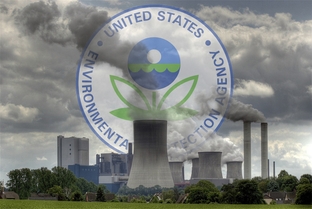Not too bad, actually.
Texas’ Republican leaders and environmentalists are both claiming victory Tuesday following an appeals court ruling that requires the federal government to ease limits on certain emissions for Texas and a dozen other states.
The U.S. Court of Appeals for the D.C. Circuit on Tuesday ordered the Environmental Protection Agency to revisit caps on nitrogen oxide and sulfur dioxide emissions — set in an effort to limit the effects of air pollution across state boundaries. But the court also upheld the agency’s right to enforce such a regulation.
Texas was among 13 states, joined by industry and labor groups, that sued over the so-called Cross-State Air Pollution rule in 2011, challenging the EPA’s framework and complaining states weren’t given enough time to comply.
The regulation requires Texas and other “upwind” states in the South, Midwest and Appalachia to cut certain emissions that contribute to air pollution in East Coast states like New York.
In a 6-2 decision last year, the U.S. Supreme Court largely upheld the rule in a major win for the Obama administration. But the justices told the lower courts to resolve lingering questions about how to implement it.
Tuesday’s ruling addressed those issues, with the court noting “the petitions for review are therefore granted in part and denied in part.” It opted to leave the current emissions rules in place as the EPA revises them.
See here for the background. The DC Court had previously ruled against the CSAPR, but SCOTUS overruled them. The EDF explains what this ruling means.
The D.C. Circuit Court decision recognizes that, when the Supreme Court upheld the Cross-State Air Pollution Rule in April of 2014, it affirmed EPA’s fundamental methodology for implementing the “good neighbor” protections of the Clean Air Act. Today the D.C. Circuit Court granted claims by Texas and other states challenging particular emissions budgets while firmly rejecting associated requests to vacate the state-based emissions protections and rejecting several additional fundamental legal claims.
The court directed EPA to carry out additional analyses on remand, stating, “We remand without vacatur to EPA for it to reconsider those emissions budgets. We reject all of petitioners’ other challenges to the Transport Rule, including all of their facial challenges to the Rule. (Decision, page 36, emphasis added)
The rule’s life-saving pollution reductions remain in full effect.
So that’s pretty good. I trust the revised rules the EPA comes up with will also be pretty good. Tough luck, polluters.

